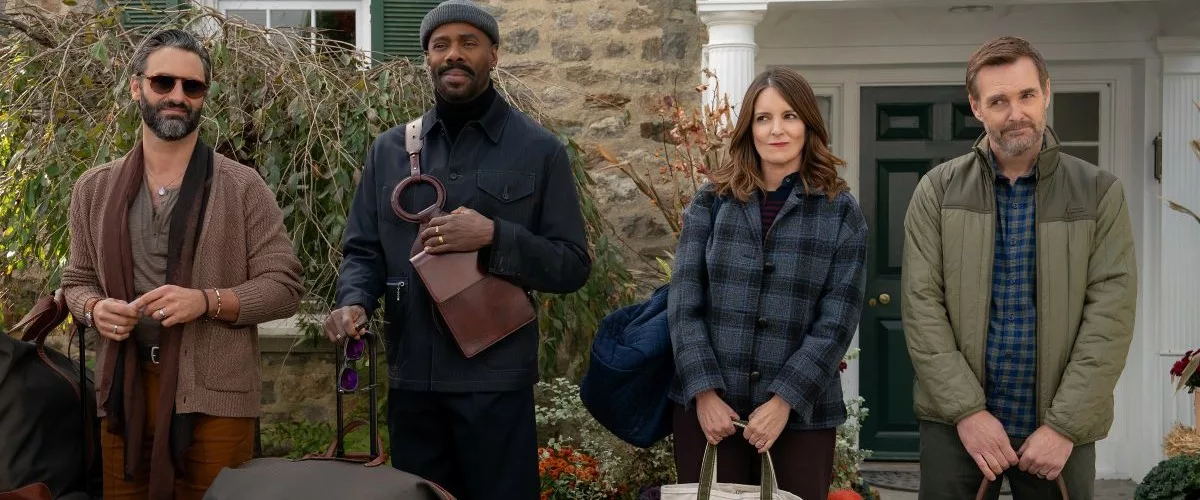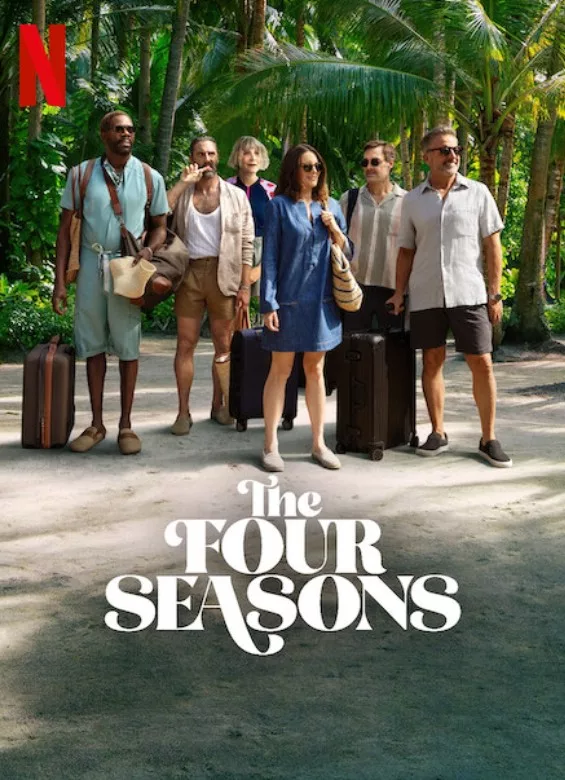Netflix’s latest miniseries “The Four Seasons,” a loose adaptation of the 1981 Alan Alda film of the same name (and the legend makes a nice cameo in the premiere), is a depressing waste of significant talent. There are so many people I like in this show playing characters that I increasingly couldn’t stand to be around. On paper, it’s a solid idea for a Netflix distraction: An eight-chapter examination of how actions within a group of adult friends ripple across couples who have known each other for decades. Unfortunately, it’s a show populated by ideas instead of people, a program that moves so quickly that it never gets under the surface of any of the people on this journey. A few of the show’s remarkable performers rise above the material—Colman Domingo can do no wrong—but this is still one of the bigger disappointments of the year.
“The Four Seasons” unfolds in four hour-long chapters, inexplicably divided into half-hour episodes instead of just presented as a four-hour mini-series a la “Adolescence.” Each chapter takes place in a different season at a unique vacation spot enjoyed by a group of old friends. The idea that we show different sides of ourselves to not just our friends but our partners when we’re away from the restrictions of ordinary home life is a rich one. Still, the writers do too little with it (or nearly any of the ideas they raise before skipping off to the next twisty plot point).
In the premiere, we meet three couples at different stages of their existence: Kate (Tina Fey) & Jack (Will Forte), Nick (Steve Carell) & Anne (Kerri Kenney-Silver), and Danny (Domingo) & Claude (Marco Calvani). Kate & Jack seem to be a strong union, even if he relies on her too much to get him through this thing called life. Danny & Claude are also happy, but pending health issues for Danny have his husband terrified of his safety and worried that he’s not taking it seriously enough. Nick & Anne are in the most trouble as Nick reveals to his friends that he’s planning to leave Anne, who, of course, is planning a vow renewal ceremony for the weekend that goes sitcom-ishly awry. To be fair, Kenney-Silver moves mountains on this show to make a character who could have been little more than the “betrayed woman” into something much more three-dimensional. In an excellent ensemble, she’s easily the standout.
That’s partly because she feels true in ways that the others simply do not. Fey and Forte, in particular, drown in the clichés of their characters. On paper, the idea is that Kate & Jack look at their marriage in a new light after the dissolution of Nick & Anne’s. But the writing forces so many shallow beats that it becomes increasingly difficult to care about what happens to these narcissists, especially in the final chapter, in which Kate is quite simply awful for the sake of the plot and not in a genuine manner. There are just too many beats in the writing that feel pulled from self-help books about marriage or equally vapid tales of people walking around their college town and saying, “Why is everything different?” And the way the writers thrust these characters into sitcom-esque situations—like a horrendous episode about a daughter using an original play to hurt her parent—consistently punctures any attempts at character-driven storytelling.
We have seen so many stories of mid-life crises and how they impact marriages, and it’s just disheartening to see such smart, talented writers and performers falling back into all of the clichés of the genre yet again. It’s also even less enjoyable given the wild privilege of these people that’s never remotely interrogated by the writing. This is somehow more of a show about rich people behaving obnoxiously than “The White Lotus” because it rarely bothers to address the superficiality of rich people complaining about vacation conditions.
A few performances keep “The Four Seasons” from completely collapsing, especially Domingo and Kenney-Silver, but it’s a show that feels significantly longer than its roughly 4-hour runtime. It’s like being trapped on a vacation with people you don’t really like. A character near the end of the series says, “Art should make you feel something.” I guess annoyed is a feeling.




















